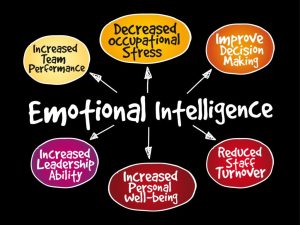Emotional intelligence (EI) has emerged as a crucial factor in the realm of education, influencing not only academic success but also the overall well-being of students and educators alike. Defined as the ability to recognize, understand, and manage one’s own emotions, as well as the emotions of others, EI plays a vital role in creating a positive learning environment. This article explores the significance of emotional intelligence in education and its multifaceted benefits.
Enhancing Social Skills
One of the most immediate benefits of emotional intelligence in the classroom is the enhancement of social skills. Students with high EI are better equipped to communicate effectively, express their thoughts and feelings, and engage in meaningful interactions with their peers and teachers. This ability to connect with others fosters collaboration, making group projects more productive and enjoyable. Moreover, students who can manage their emotions are more adept at resolving conflicts, contributing to a harmonious classroom atmosphere.
Improving Academic Performance
Emotional intelligence also has a direct impact on academic achievement. Students who possess strong self-regulation skills can manage their emotions, leading to improved focus and persistence in their studies. They are less likely to be overwhelmed by stress and setbacks, which allows them to maintain motivation and enthusiasm for learning. Research indicates that students with higher EI tend to perform better academically, as they are more capable of setting and achieving personal goals.
Fostering Empathy
Empathy, a key component of emotional intelligence, is essential in a diverse classroom setting. Students who understand and appreciate the emotions of their peers are more likely to build supportive relationships, which enriches the learning environment. This empathetic approach encourages students to embrace diversity, leading to a more inclusive atmosphere where all voices are valued. As a result, classrooms become spaces of collaboration and mutual respect, enhancing overall student engagement.
Better Stress Management
In today’s fast-paced educational landscape, stress is a common challenge for both students and teachers. Emotional intelligence equips individuals with the tools to identify and cope with stress effectively. Students who understand their emotional triggers can employ coping strategies to deal with academic pressures, ultimately promoting mental well-being. Techniques such as mindfulness and reflective practices, often associated with high EI, can help students stay grounded and focused, even in challenging situations.
Strengthening Teacher-Student Relationships
The role of emotional intelligence extends beyond students; it is equally vital for educators. Teachers with high EI are more capable of forming trusting relationships with their students. This rapport creates a safe and open learning environment, where students feel comfortable expressing themselves. Such connections lead to more responsive teaching, as educators can better understand and address the emotional needs of their students.
Preparing for the Future
In an increasingly interconnected world, emotional intelligence is a key skill that prepares students for success beyond the classroom. Many employers value EI as much as technical skills, recognizing its importance in fostering collaboration and effective communication within teams. By developing emotional intelligence in school, educators equip students with lifelong skills that enhance their personal and professional lives.
Creating a Positive Classroom Climate
A focus on emotional intelligence contributes to a positive classroom climate, which is essential for effective learning. Classrooms that prioritize EI tend to experience fewer behavioral issues, as students learn to manage their emotions constructively. This nurturing environment encourages active participation and engagement, making learning more enjoyable for everyone involved.
Conclusion
The importance of emotional intelligence in education cannot be overstated. By fostering EI among students and educators, schools can create enriching environments that support holistic development and prepare individuals for future challenges. As we continue to navigate the complexities of modern education, prioritizing emotional intelligence will be key to cultivating resilient, empathetic, and successful learners. Embracing this approach not only enhances academic performance but also nurtures the social and emotional well-being of all members of the educational community.


